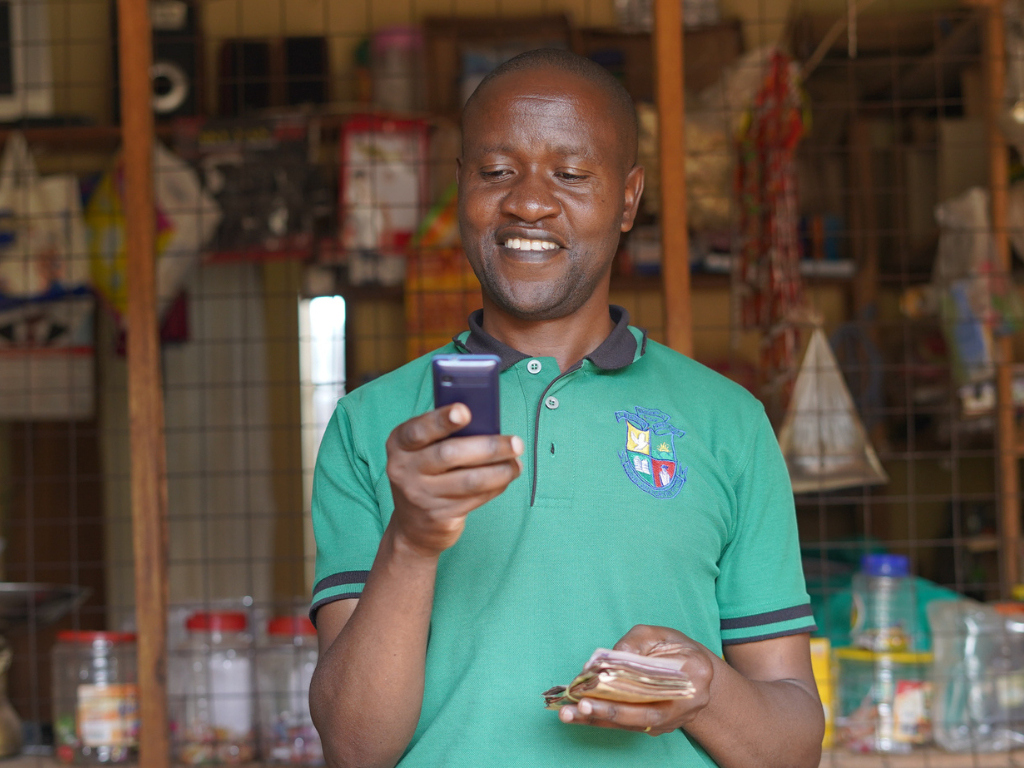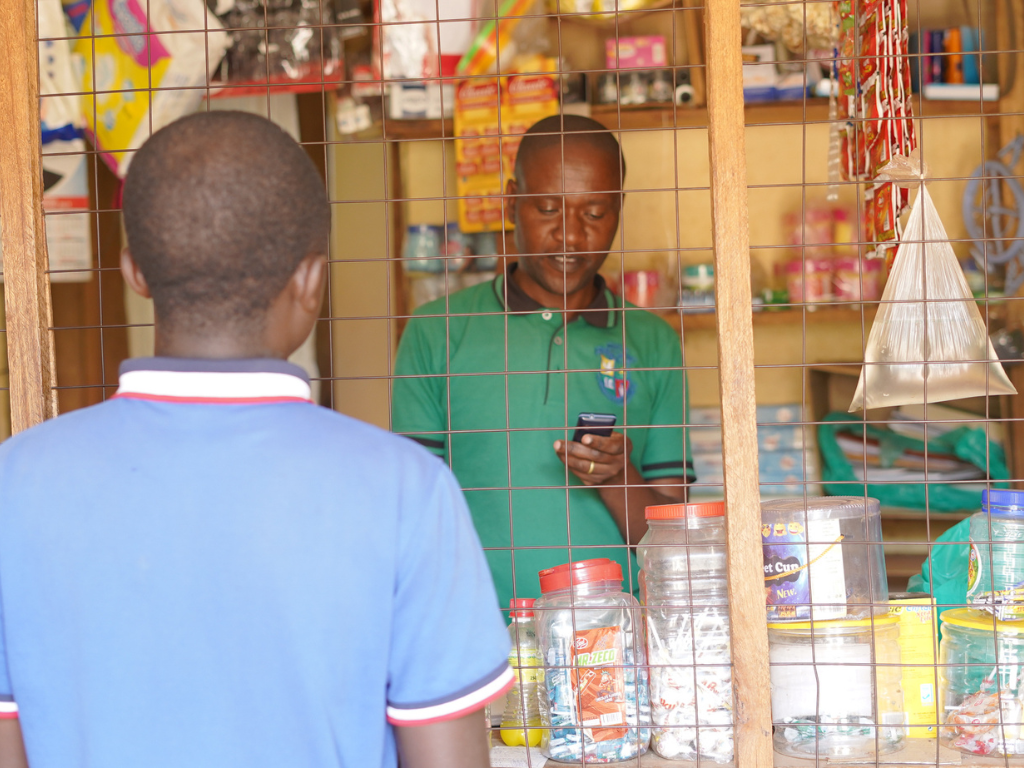Startup Funds for Last-Mile Entrepreneurs

Richard, a 43-year-old primary school teacher, lives with his wife and four children in a remote village in the Rukungiri district in southwestern Uganda. Limited income, a small garden that could barely sustain his family’s nutrition needs, and the cascading impact of the pandemic’s economic shock had taken a toll on Richard and his family. To increase and diversify his household income, he was eager to start his own grocery store but did not have access to the investment he needed. He decided to rent a mobile money line to process transactions for his community as an interim solution to generate some additional income.
“I would hire the line from another agent for UGX 25,000 ($6.8) per month and make a daily profit of only UGX 2,000 ($0.5).” Richard says.
With this initiative and the meagre income it generated, his dream of opening the grocery store still seemed unattainable. He wanted to have his own mobile money line to save enough money and invest further. But a significant hurdle, particularly for last-mile communities, was the lack of access to affordable funds.
“I had a problem with arranging finance. Banks are there, but the process takes a lot of money to get the money. There are many charges [interests] and security for the loan, which I didn’t have.” Richard bemoaned.
Undeterred, Richard and members of his community formed the Kamira agriculture Village Savings and Loans Association (VSLA) as part of Raising The Village’s program. The group comprised 52 members, each saving UGX 30,000 ($8) monthly. The cumulative pool was available to members through low-interest loans for approved business ideas as part of the community-led, peer-reviewed system.

“We wanted to start saving to fight poverty. We were trained by Raising The Village that saving helps create investment opportunities.” Richard quips.
Richard’s VSLA received additional support from Raising The Village. In response to the dire shock to savings and incomes in our partner communities due to the pandemic, RTV immediately mobilized to launch Village Startup Fund (VSF) to provide affordable credit to established RTV VSLA groups. As a part of Raising The Villages’ vision of increasing and diversifying household incomes in last-mile villages, VSF provided a pathway for Richard to get easy access to finances to invest in his business and improve his livelihood. As a result, he was able to buy a mobile line of his own, save enough money, open a small grocery store, and successfully add additional earning sources to his family income.
“I started this business because of Raising The Village. They taught us how to start a business and how to manage finances. They also gave us credit to help us scale our investments,” Richard said. “Our group received a VSF credit of UGX 5.2m ($1,416). All the 52 members were eligible to UGX 100,000 each for investment.”
With his mobile line and grocery store businesses flourishing, true to his entrepreneurial spirit, Richard isn’t done yet. “I want to be an influential person in my community with wealth and the ability to help others,” Richard concludes as he serves yet another customer at his grocery store.
Be part of our journey. Support last-mile communities by supporting Raising The Village.
Let’s Stay Connected

